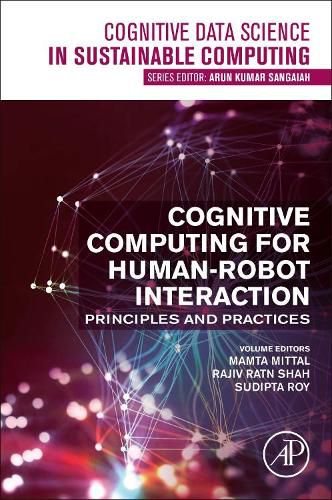Readings Newsletter
Become a Readings Member to make your shopping experience even easier.
Sign in or sign up for free!
You’re not far away from qualifying for FREE standard shipping within Australia
You’ve qualified for FREE standard shipping within Australia
The cart is loading…






Cognitive Computing for Human-Robot Interaction: Principles and Practices explores the efforts that should ultimately enable society to take advantage of the often-heralded potential of robots to provide economical and sustainable computing applications.
This book discusses each of these applications, presents working implementations, and combines coherent and original deliberative architecture for human-robot interactions (HRI). Supported by experimental results, it shows how explicit knowledge management promises to be instrumental in building richer and more natural HRI, by pushing for pervasive, human-level semantics within the robot’s deliberative system for sustainable computing applications.
This book will be of special interest to academics, postgraduate students, and researchers working in the area of artificial intelligence and machine learning.
Key features:
Introduces several new contributions to the representation and management of humans in autonomous robotic systems;
Explores the potential of cognitive computing, robots, and HRI to generate a deeper understanding and to provide a better contribution from robots to society;
Engages with the potential repercussions of cognitive computing and HRI in the real world.
$9.00 standard shipping within Australia
FREE standard shipping within Australia for orders over $100.00
Express & International shipping calculated at checkout
Cognitive Computing for Human-Robot Interaction: Principles and Practices explores the efforts that should ultimately enable society to take advantage of the often-heralded potential of robots to provide economical and sustainable computing applications.
This book discusses each of these applications, presents working implementations, and combines coherent and original deliberative architecture for human-robot interactions (HRI). Supported by experimental results, it shows how explicit knowledge management promises to be instrumental in building richer and more natural HRI, by pushing for pervasive, human-level semantics within the robot’s deliberative system for sustainable computing applications.
This book will be of special interest to academics, postgraduate students, and researchers working in the area of artificial intelligence and machine learning.
Key features:
Introduces several new contributions to the representation and management of humans in autonomous robotic systems;
Explores the potential of cognitive computing, robots, and HRI to generate a deeper understanding and to provide a better contribution from robots to society;
Engages with the potential repercussions of cognitive computing and HRI in the real world.